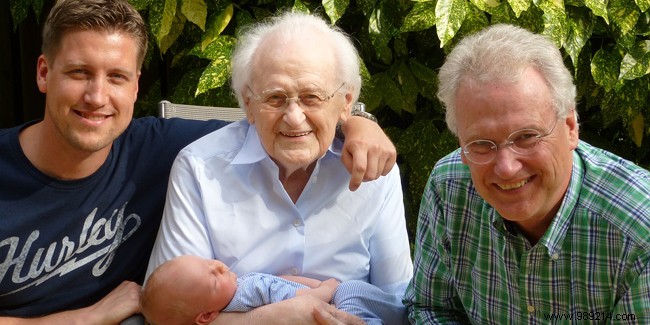
French law imposes restrictions on the freedom of choice of heirs in order to protect the ascendants and descendants of a deceased person. However, provided in most cases that the share of the minimum legal inheritance which is due to these heirs by right is not touched, it is possible to resort to processes which make it possible to bequeath a part of one's property. to the person of his choice.
In the absence of a will, the law provides very specific rules for the designation of heirs, in particular a minimum share of inheritance (the hereditary reserve) for the spouse and children who are called the compulsory heirs.
If the deceased is married and had children, his property legally goes to his spouse and his descendants. If the children are from the couple, the surviving spouse has the choice between using or collecting income from all the property inherited (this is called usufruct) or benefiting from full ownership of a quarter of the estate, that is to say to have the possibility of selling them for example. In this case, the rights of the descendants are reduced. If the children are from a previous union, the surviving spouse inherits one quarter of the estate in full ownership and the children the remaining three quarters.
In matters of inheritance, all children have the same rights. The property is divided between them in equal shares. Normally, the grandchildren of the deceased do not inherit anything unless their parents are deceased, if their parent concerned renounces his inheritance or if he is designated as "unworthy to succeed" because he has been sentenced to a criminal sentence. for acts committed against the deceased person, or if he was excluded from the succession by another heir for serious cases recognized by the High Court.
The partner of the deceased who had children, but who was unmarried (pacsé or concubinage) has no right to the estate. It is his children who receive the entire inheritance.
If the deceased was married but had no children, and both parents are still alive, half of the inheritance goes to them, and the other half to her husband. If only one of his parents is alive, ¼ of the estate goes to him and the other three quarters to the surviving spouse. In the event that the parents of the deceased are both dead, the heir is his spouse.
If the deceased was unmarried but had brothers and sisters, the estate is divided equally between them. Half-brothers and half-sisters have the same inheritance rights. Without the presence of brothers and sisters, the heirs are automatically his ascendants (parents, grandparents, great-grandparents) who divide the estate into two equal parts per parental branch. In the absence of ascendants, the heirs are the uncles, aunts, cousins and cousins of the deceased.
Even if the law governs inheritance rights, it is however possible to derogate from the rule under certain conditions to choose his heirs. If it is not possible to completely disinherit his compulsory heirs, there are legal solutions to choose to benefit one of them, or a third party.
It is possible to decide during one's lifetime to distribute one's property (legacies) among chosen beneficiaries by expressing one's wishes in a will, a written document, before a notary or not, which mentions the last wishes of the deceased person. A will can be made by anyone who has “mental capacities allowing discernment and a sufficiently enlightened will .
Provided that it does not exclude compulsory heirs, this document may specify to whom belongs the part of the inheritance which exceeds the hereditary reserve, called the “available portion”. The latter can be bequeathed entirely to a single person (the universal legatee), for a part to a so-called “universal title” legatee. Specific assets, designated by the deceased in his will, can be bequeathed to a person (the particular legatee). It is also possible to make a bequest to recognized associations of public utility.
Always on the condition of not encroaching on the hereditary reserve, part reserved for heirs by right, it is possible to make a donation during his lifetime to one of his children, grandchildren, to his spouse or his partner, to a member of his family or any other person outside his family.
The assets concerned by a donation are essentially immovable or movable assets. The donation can take the form of a “customary present”, that is to say a small gift offered on the occasion of a particular event. It can also be a “manual gift” of movable property or sums of money. On the other hand, the donation of real estate, the donation between spouses, the donation made by marriage contract, must be the subject of a deed before a notary.
During their lifetime, any person can take out a life insurance contract which provides for the payment, after their death, of an annuity or capital to one or more beneficiaries that they have designated. These can be changed throughout the life of the insurance contract. In the case of an inheritance within the framework of life insurance, the compulsory heirs cannot contest the choice of the beneficiary or beneficiaries.